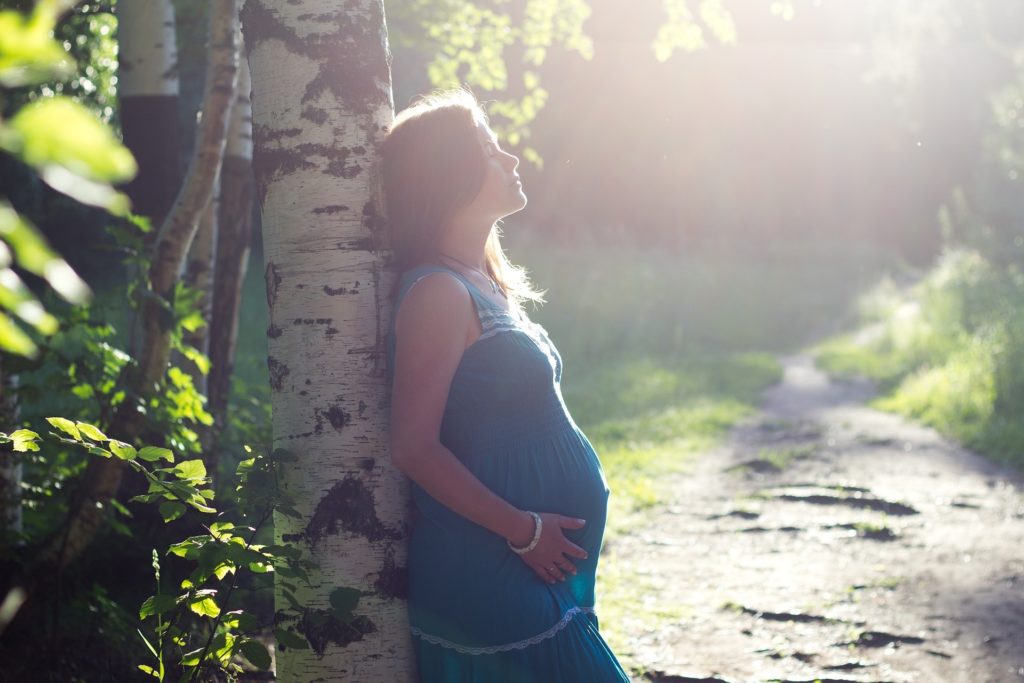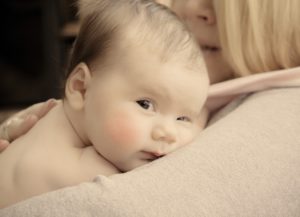- Calls to this hotline are currently being directed to Within Health, Fay or Eating Disorder Solutions
- Representatives are standing by 24/7 to help answer your questions
- All calls are confidential and HIPAA compliant
- There is no obligation or cost to call
- Eating Disorder Hope does not receive any commissions or fees dependent upon which provider you select
- Additional treatment providers are located on our directory or samhsa.gov
Postpartum Depression in Eating Disorders

On average, 130 million babies are born per minute. 130 million life-changing moments are happening around the world. It is a beautiful thought of so many lives being created.
Yet, this also means that 130 million women per year are susceptible to postpartum depression. Unfortunately, the likelihood of postpartum depression increases if the individual has a prior history of mental illness such as an eating disorder diagnosis.
Postpartum depression is not as uncommon as you may think. According to the Centers for Disease Control (CDC), 1 in 9 women report symptoms of postpartum depression [1].
Yet, it is largely undiscussed, with many women suffering in silence. New mothers are afraid to acknowledge that they are not truly happy after having their baby. This is in part due to our society’s stigmas that the birth of your child must be one of the most joyous times of your life.
It is okay to have conflicting positive and negative emotions and thoughts after having a baby. However, if you have struggled with an eating disorder, it is important to be aware of the relationship between postpartum depression and eating disorders.
This is so you can recognize the potiential signs of postpartum depression and provide the best possible care for your baby and yourself.
Postpartum Depression
 The definition of postpartum depression is just as it sounds, a state of depression after having a baby.
The definition of postpartum depression is just as it sounds, a state of depression after having a baby.
As the CDC clarifies, “Feelings of postpartum depression are more intense and last longer than those of ‘baby blues,’ a term used to describe the worry, sadness, and tiredness many women experience after having a baby [1].”
Postpartum depression symptoms can be similar to those of Major Depressive Disorder with some variations such as:
- Feelings of anger
- Withdrawing from loved ones
- Feeling numb or disconnected from the baby
- Worrying that one might hurt the baby
- Feeling guilty about not being a good mom
- Doubting your ability to care for the baby [1]
Risk factors for postpartum depression include stressful life events, low social support, previous or family history of depression, difficulty getting pregnant, having multiples (twins, triplets), being a teen mom, preterm labor (before 37 weeks), pregnancy and birth complications, and having a baby that is hospitalized [1].
10-20% of women and 4% of men report experiencing depression in their child’s first year of life [2].
Postpartum Depression in Eating Disorders
The link between postpartum depression and eating disorders can be often be drawn through the link between Major Depressive Disorder and Generalized Anxiety Disorder and EDs.
Research has long shown high rates of comorbidity between depression and anxiety and eating disorders, as well as between depression and anxiety and postpartum depression [2].
The connection between eating disorders and postpartum depression is less researched, but there is some science out there that indicates over 1/3 of women with current/past history of eating disorders experience postpartum depression [1].
 One study found that “pregnancy ED symptoms and past depression have an additive effect in increasing the risk for depression and anxiety perinatally [2].”
One study found that “pregnancy ED symptoms and past depression have an additive effect in increasing the risk for depression and anxiety perinatally [2].”
There could be many reasons for this relationship, such as:
- Previous mental health diagnoses
- Body dissatisfaction
- Isolation
- Lack of sleep
- Decreased access to or engagement in therapy or treatment
- Feelings of low-self worth
- Invalidation as a parent, etc.
While this may be disconcerting, it does not mean that experiencing postpartum depression is a “given” for those with current or past ED behaviors. However, having knowledge of increased risk can allow you and your doctors to look out for the symptoms as you go through this life transition.
It is okay to acknowledge the complex emotions that go through this most complex of human experiences. Just as your resilient heart overcame an eating disorder, you can work through postpartum depression and any eating disorder symptoms to live a joyous and happy life with your family.
Resources:
[1] Unknown (2019). Reproductive health – depression among women. The Centers for Disease Control, retrieved from https://www.cdc.gov/reproductivehealth/depression/index.htm. [2] Micali, N., Simonoff, E., Treasure, J. (2011). Pregnancy and post-partum depression and anxiety in a longitudinal general population cohort: The effect of eating disorders and past depression. Journal of Affective Disorders, 131.About the Author:
 Margot Rittenhouse, MS, PLPC, NCC is a therapist who is passionate about providing mental health support to all in need and has worked with clients with substance abuse issues, eating disorders, domestic violence victims, and offenders, and severely mentally ill youth.
Margot Rittenhouse, MS, PLPC, NCC is a therapist who is passionate about providing mental health support to all in need and has worked with clients with substance abuse issues, eating disorders, domestic violence victims, and offenders, and severely mentally ill youth.
As a freelance writer for Eating Disorder Hope and Addiction Hope and a mentor with MentorConnect, Margot is a passionate eating disorder advocate, committed to de-stigmatizing these illnesses while showing support for those struggling through mentoring, writing, and volunteering. Margot has a Master’s of Science in Clinical Mental Health Counseling from Johns Hopkins University.
The opinions and views of our guest contributors are shared to provide a broad perspective on eating disorders. These are not necessarily the views of Eating Disorder Hope, but an effort to offer a discussion of various issues by different concerned individuals.
We at Eating Disorder Hope understand that eating disorders result from a combination of environmental and genetic factors. If you or a loved one are suffering from an eating disorder, please know that there is hope for you, and seek immediate professional help.
Published October 21, 2019, on EatingDisorderHope.com
Reviewed & Approved on October 21, 2019, by Jacquelyn Ekern MS, LPC

The EatingDisorderHope.com editorial team comprises experienced writers, editors, and medical reviewers specializing in eating disorders, treatment, and mental and behavioral health.

